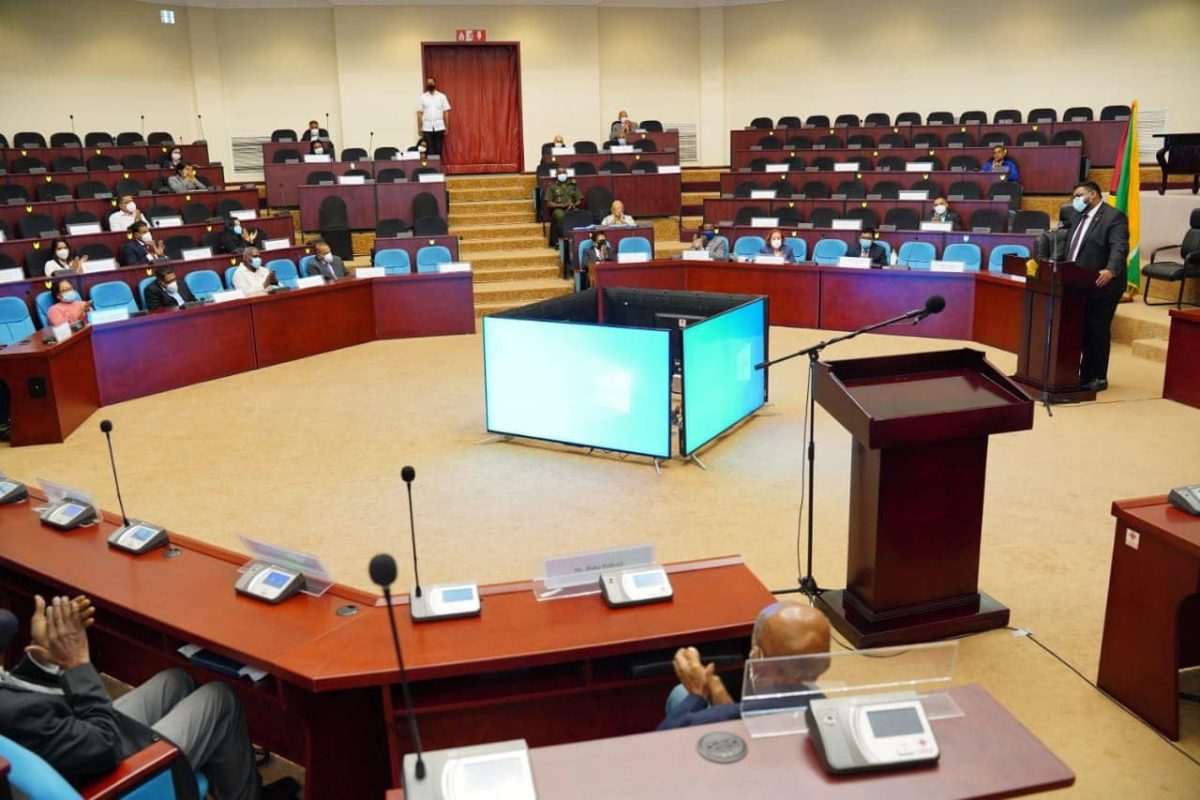President Irfaan Ali yesterday welcomed the ruling by the International Court of Justice (ICJ) that it has jurisdiction to hear Guyana’s case seeking the validation of the 1899 arbitral award establishing the boundary with Venezuela, calling it a victory that demonstrates what can be achieved through unity.
“…Today’s victory is not small victory. This victory is a testimony of what we can achieve as a people when we are united and this should be a healing point for only country. There is no compromise on our sovereignty. We are together in this and it is in this same spirit that I think we should be together on the development and the future of our country,” Ali said.
He was at the time delivering an address following the ICJ’s ruling, which was viewed by members of the Cabinet, the Joint Services and Civil Society at the Arthur Chung Conference Centre, at Liliendaal.
Additionally, Ali said the ruling is also a “great” victory for the rule of law internationally. “The court’s decision means that international law can be bought to bear to ensure that Guyana’s patrimony is preserved.
The law of nations can be allowed to prevail in the face of efforts that point in other direction,” he noted.
Despite the political controversies, Ali stated, both the present and past administration have been united in seeking international justice to uphold the “territorial integrity” of the country.
As a result of the ruling, the court will now proceed to hear the merits of the case. “It is to that phase of the case that we now bend our will in unity as a nation and with conviction in the rightness of our cause,” Ali said.
He further related that the victory paves the way for a “full” and complete” settlement of the border controversy.
“Our greatest hope is when we are united. The best we can achieve in the future must be and will be when we are united. This case is just an example of that unity….I have no doubt that we our just cause and our just case will bear fruit,” he stated.
In a brief statement yesterday, Opposition Leader Joseph Harmon said on the issue of sovereignty and territorial integrity “we stand together as a nation and we trust that as the case moves to the next stage that we continue to stand on common ground.”
On behalf of the AFC, General Secretary David Patterson called the ruling a victory for the country and testament to the decisions on this matter by the APNU+AFC administration, under which the move to the ICJ was initiated.
Reminding that the case is a matter of national importance, Patterson said the AFC was also urging that the government engage with all stakeholders, including the opposition. “We congratulate the legal team and wish them all success in the next phase of the legal battle,” he added.
The judgment found that both Guyana and Venezuela had conferred authority on the UN Secretary General under the February 17th 1966 Geneva Agreement. That agreement allowed the Secretary General to choose a means of settlement under Article 33 of the Charter of the United Nations, which included judicial settlement.









